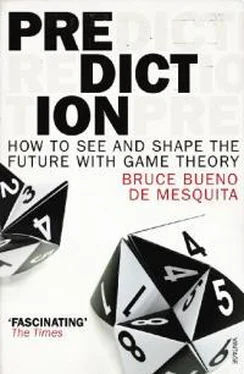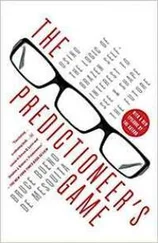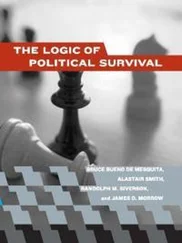9

FUN WITH THE PAST
HERE ARE QUESTIONS and brief answers about four really big events in history:
Why did Sparta lose its hegemonic position in Greece just thirty-three years after victory in the Peloponnesian War ?
Because Spartans loved their horses more than their country.
Why did Ferdinand and Isabella decide to fund Columbus ?
Because he agreed to work cheap.
How could World War I have been avoided ?
By British sailors taking a summer cruise to the Adriatic.
How could World War Ii have been avoided ?
By German Social Democrats making nice to the pope.
If the Spartans had not been so fond of horse races, we might all speak Greek today. If the British had been a little more adept at diplomacy in 1914, Austrians and Germans might speak English today, which, come to think of it, many of them do. Maybe in that case there would never have been a Russian Revolution, maybe Adolf Hitler would have stuck to painting, maybe there would not have been a Second World War or cold war or Winston Churchill (at least as we know him), and maybe the sun still would not set on the British Empire. We will never know. But we can approximate what might have happened if Sparta’s horses had run fewer races, or if Britain’s diplomats had shipped some of their sailors up the Adriatic in 1914, or if German socialists had shown more flexibility toward Catholics in 1933.
Let’s be fair to the decision makers of the past. Just like those of today, they were hampered by difficult choices, complicated incentives, and poor foresight. Of course they could have done better if they had had a stealth bomber or a nuclear deterrent or a high-speed computer, but they didn’t. Does that mean their hands were tied? In one sense, yes, it does. They knew what they knew and did not have the technological or scientific foundation to do much better. But in another sense, we should not underestimate what they might have done. They did have logic, and, let’s face it, logic is logic. Its fundamentals have not changed in millennia. With enough people sitting around banging out calculations with an abacus or writing down results in the sand, they might have thought up and solved a model like mine, or one that’s better.
I will explore all of these questions and their answers in this chapter. To do so, however, I have to explain a little bit more about how to think realistically about altering the world. Sure we can play games like “What if Napoleon had had a stealth bomber at Waterloo?” (probably not as useful an advantage as a few machine guns)—but he didn’t, and couldn’t. I prefer to play realistic games. That’s what we will do here. We will ask how some big events might have turned out differently if realistic alternative strategies had been pursued. So, how to think about what might have been? Answer: Think about what people could have done but chose not to do, and why.
An acquaintance of mine studies the history of religion in a mostly political context. He is especially interested in the history of religion in Russia, and especially in its survival despite seventy years of official state-sponsored atheism. He once pointed out to me, both in bemusement and with amusement, that the way I differ from a historian is that I spend 95 percent of my time thinking about what didn’t happen. He is probably right. From the perspective of many historians, how things ended up was either inevitable, or, in a diametrically opposed way, the result of chance that could have swung any which way.
I am not big on the idea of historical inevitability. If that were right, there would be no point in trying to be a political engineer, a predictioneer. The idea that history is a play and that we are acting out scripted parts with little freedom of choice seems silly at best and downright evil at worst. It risks justifying anything anyone does, no matter how terrible. This view says, “Blame the writer, not the actor.” I won’t venture to guess who the writer might be.
Conversely, the notion that the developments that make up history are primarily a series of chance events seems equally odd to me. Why fight over ideas, select governments, build armies, fund research, promote literacy, create art, or write histories if all we are doing is twiddling our thumbs while chance developments send us bouncing around like the physicist’s particles? How can anyone deny strategic behavior and its consequences when we are surrounded by it in almost everything we do?
To be sure, the world as we know it could have swung one way or the other. That’s why neither the past nor the future follows an inevitable path. There are always chance elements behind which ways things swing, but those chance events rarely decide the future. Bad weather may have been important in Germany’s failed invasion of Russia during World War II, but Hitler’s choice to delay his invasion while turning his attention to problems in Yugoslavia was a calculated risk. He regretted it later, but still, he knew delay increased the odds that the German army would face bad weather.
The December 23, 2006, 6.7 earthquake in Bam, Iran, certainly was outside anyone’s control. It cost more than 26,000 lives. That represented nearly 20 percent of the approximately 142,000 residents of the area. Interestingly, just days before, a 6.5 earthquake shook the Southern California town of Cambria. Three people died out of the nearly 250,000 in the surrounding area. The Loma Prieta earthquake in 1989 killed 68 people in the San Francisco–Oakland area, a metropolitan area with a population of more than five million. The 1989 temblor was about five times larger than the Bam quake, and yet it killed—not to minimize the tragedy—only a tiny fraction of the local population, while in Bam the death toll was horrendous. Is the vast discrepancy between deaths in California and deaths in Iran from earthquakes a matter of chance, was it inevitable, or was it a matter of strategic decisions?
The answer the press offered at the time was that people in Bam lived in mud and stone houses and people in California did not. Yet we must ask: Why do people in a wealthy country with vast oil reserves live in mud houses? It is tempting to speak of natural disasters—earthquakes, floods, droughts, famines—as if some parts of the world just have terribly bad luck. That these are dreadful natural events there is no doubt, but are they really natural disasters? Certainly such terrible events are random from a political or social perspective. Their causes are well beyond human control, at least given the current state of knowledge in predicting earthquakes, hurricanes, droughts, and tsunamis. But their consequences are not.
Death tolls from cataclysmic natural events are vastly higher in countries run by dictators than in democracies. Democratic governments prepare for disasters, regulate construction to increase the chances of surviving events like earthquakes, and stockpile food, clothing, and shelter for disaster victims. Why? Because governments elected by the people are largely accountable to the people. Governments selected by the military, or the aristocracy, or the clergy, or the one legal political party are accountable to very few. It is those few they protect, not the many, because it is at the pleasure of those few that they rule. No, even chance events rarely have consequences that are primarily due to chance. Strategic choices lurk behind who wins and who loses, who lives and who dies, even when nature seems to be the prime culprit.
Let’s take a look at some important turning points in history to see how strategic thinking contributed to developments, taking them out of the realm either of the inevitable or of the random and unpredictable. Let’s see how strategic modeling might have altered the direction the world took. Ancient Greece provides a good starting place.
Читать дальше












